In this post I take you into my clothes closet, which has two sets of shelves. One I use for clothing, the other for boxes. Yes, sorry to spring this on you, but not only are there boxes in two basements, I have some stashed in my bedroom too. Most of these boxes contain essay and memoir drafts from my graduate writing program, research for my memoir, and memorabilia from my childhood, teen, and college years, some of which I refer to when writing about the past.
I started digging into these boxes after seeing a 2024 Pulitzer Prize finalist play, “Here There Are Blueberries,” at McCarter Theater last week. It’s about how the U.S. Holocaust Museum accepted and researched a photo album that contained photos of Nazis going about their social and business lives while running Auschwitz. The museum is dedicated to highlighting the experience of victims and survivors, so this was unusual work for them. If you ever get the chance to see it, I highly recommend it. It is especially chilling in light of the normalization of fascism in the U.S. today.
Seeing the play brought up the uncomfortable reality that I have some photos from my father that I need to send to the Museum. And I need to write a fuller essay about growing up with a Hitler-apologist in my father. These are the kinds of things that are hard to excavate–it’s not simply emptying a box and dropping stuff off at a thrift shop. They demand a whole other level of examination and truth-telling.
So, in the course of looking for those photos, which I did eventually find, I opened up a box labeled “Sue/Trophies,” curious to see what sports-related memories were there, nestled in crunched-up newspapers and bubble wrap. There were a few all-star trophies from Rutgers summer camp and holiday tournaments, a District 1 champion medal, and one from seventh grade at St. Al’s. There was also a trophy and plaque from a couple of 10k races and a trophy from a summer playing slow-pitch at home with my sisters and high school friends after my freshman year at Princeton.
For those who might not know, I was a total tomboy, jock, one-season Little Leaguer, basketball, softball, and tennis player in high school, and basketball and softball player in college. Then I went through a brief phase of running 10Ks. And I coached girls’ basketball and softball for a bunch of years. (These days I nurse a lot of creaky joints.)
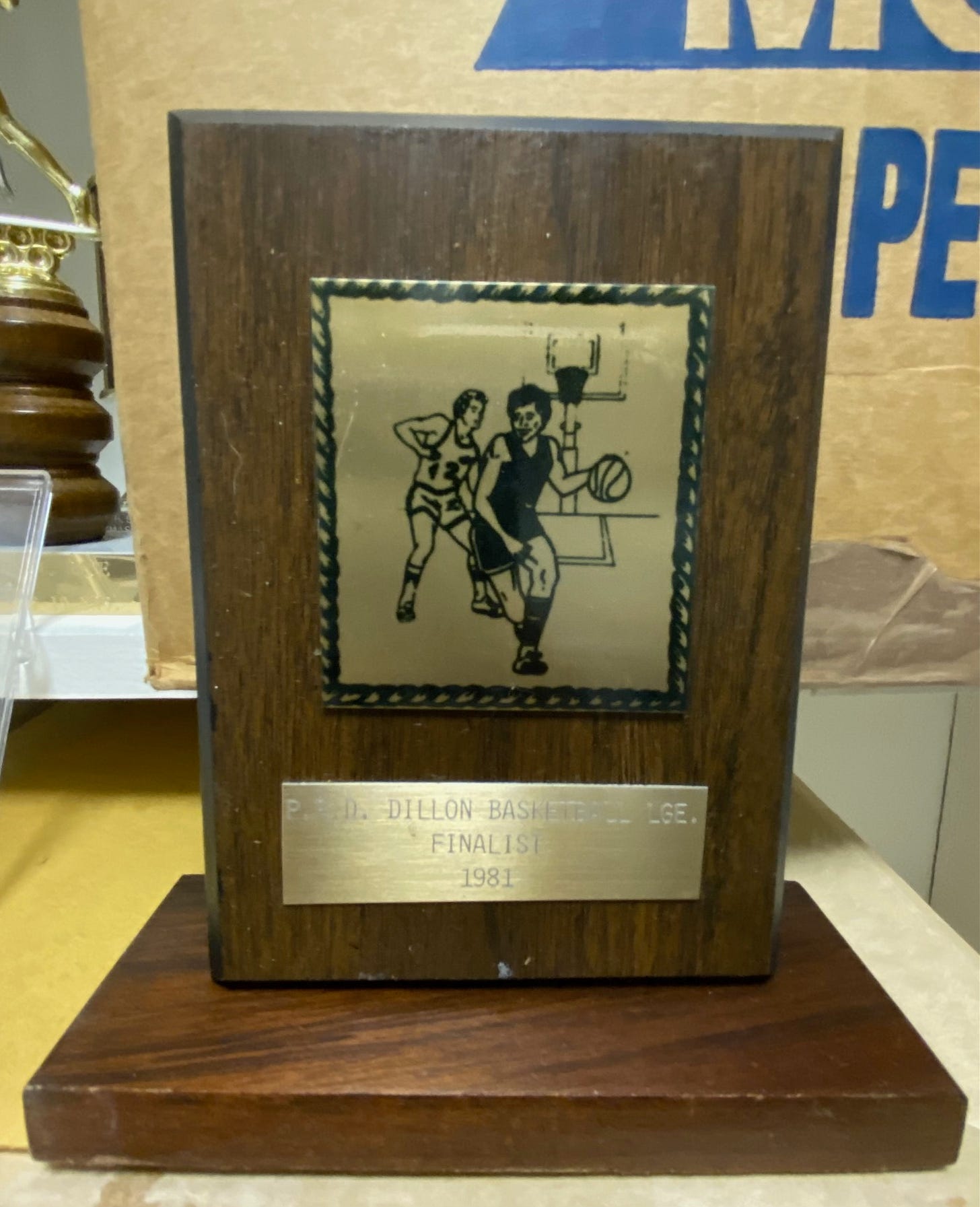
But I was a multi-faceted young person–serious, spiritual, observant, hypervigilant in some regards. In the box was the Theology award I got when I graduated from my Catholic high school, and the American Legion Award I received when I graduated from my Catholic elementary school. That one was for “courage, honor, leadership, scholarship, service, and Americanism," according to the local paper. Let’s let that sink in.
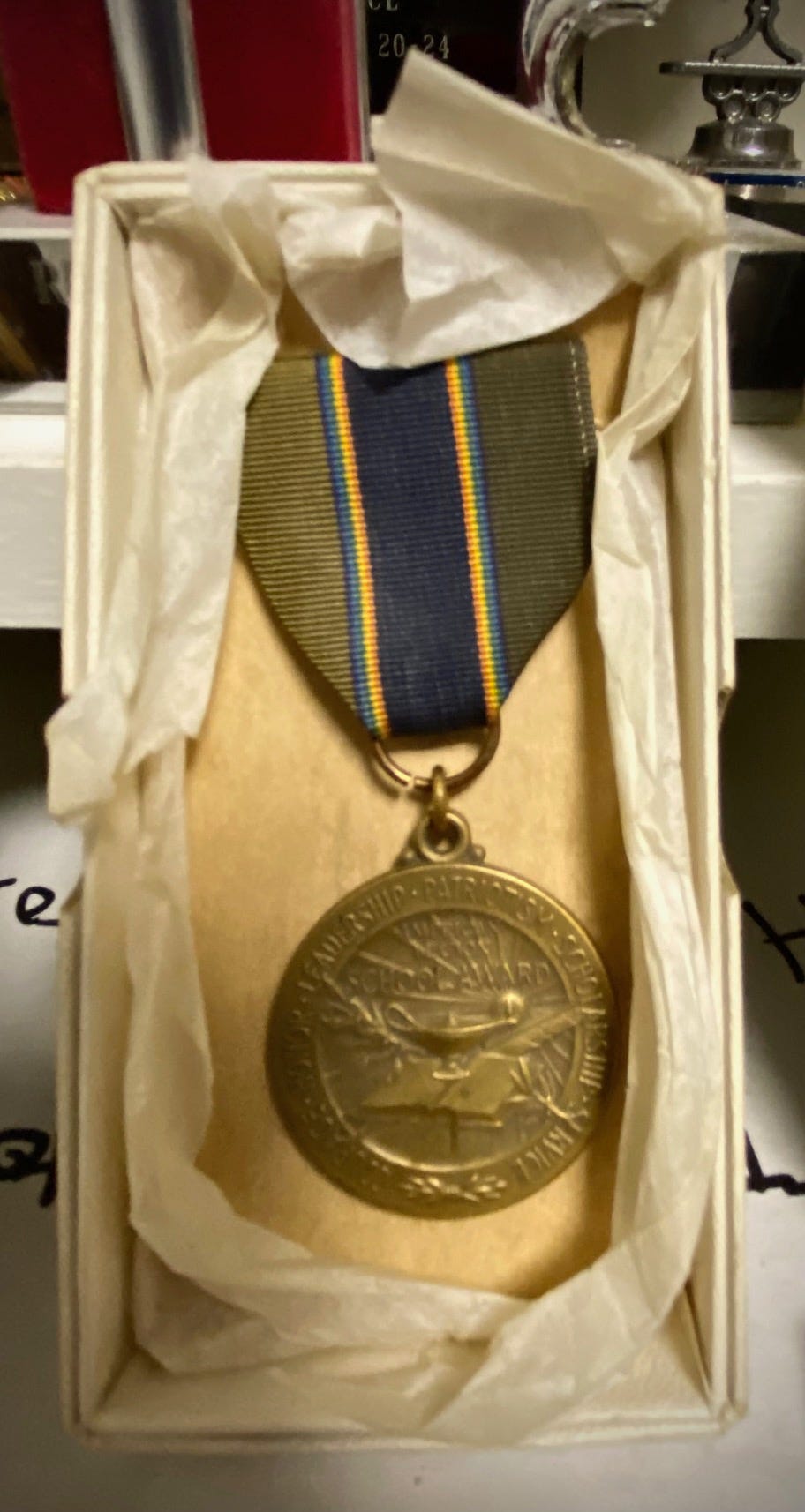
If you know me at all from my sincere, strident, or apoplectic Facebook posts when things are going terribly wrong with our democracy, it may help to understand that I was a very earnest kid, believing in and acting upon the ideas of democracy AND doing what Jesus would have done. My faith and how I was supposed to put it into action were being entwined by my middle school religion teachers. By pre-adolescence and early adolescence, the messages of loving service I was getting through my religious education started to brush aside the contradictory messages and racist “jokes” I was hearing at home.
While I don’t recall learning about Dorothy Day and The Catholic Worker Movement, I was clearly influenced by those ideas growing up Catholic, post-Vatican II in the 1960s and 1970s.
Besides the Theology and American Legion awards, there was a trophy from 1975, when I was in seventh grade. I won second place in an oratorical contest sponsored by our local Optimist club, in which a group from my school participated.
I wish I still had the note cards for my speech! One thing I remember for certain, and can still picture my handwriting on the card, was my quoting of Martin Luther King, Jr.:
“I have a dream that my four little children will one day live in a nation where they will not be judged by the color of their skin, but by the content of their character.”
While I will be disposing of most of the sports trophies, I will be holding onto the proof of my oratorical contest win. I’m calling it my DEI trophy. My Catholic community and the civics-minded organizations in my working class town in Pennsylvania rewarded my younger self for espousing equality. For proclaiming the importance of one of our greatest civil rights leaders. For naming the racism that still ate at the core of American society.
I’ve sometimes struggled to explain to people, who knew me growing up, that just because I no longer practice or identify as a Catholic (another long essay), all those values are at the core of my being–at the way I move through the world, giving a speech against gun violence, interacting with a young person figuring out their identity, or an adult working their way through trauma in an essay. The essence of the earnest believer that I was in 1975 is still in me today.
Of course, I have screwed up, said and done the wrong things over the course of a lifetime, had to humble myself, listen to others, read some more, learn something new, commit to doing better. And I will keep trying to do my part to perfect this democracy of ours – which has diversity, equity, and inclusion at its core, in its founding documents.
Stereotypes, hate, and exclusion don’t hold up if you allow yourself to truly see someone who is superficially “other” to you and to hear their life stories. Black-and-white fades to grey. Simplicity gives way to complexity. That’s where humanity lies.
P.S. Kate Delhagen was kind enough to share in the comments this article at Today.com about whether/how to save your children’s trophies, and where you can send old trophies so they can be re-used. Thanks, Kate!

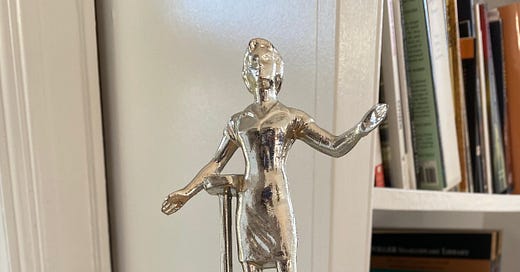


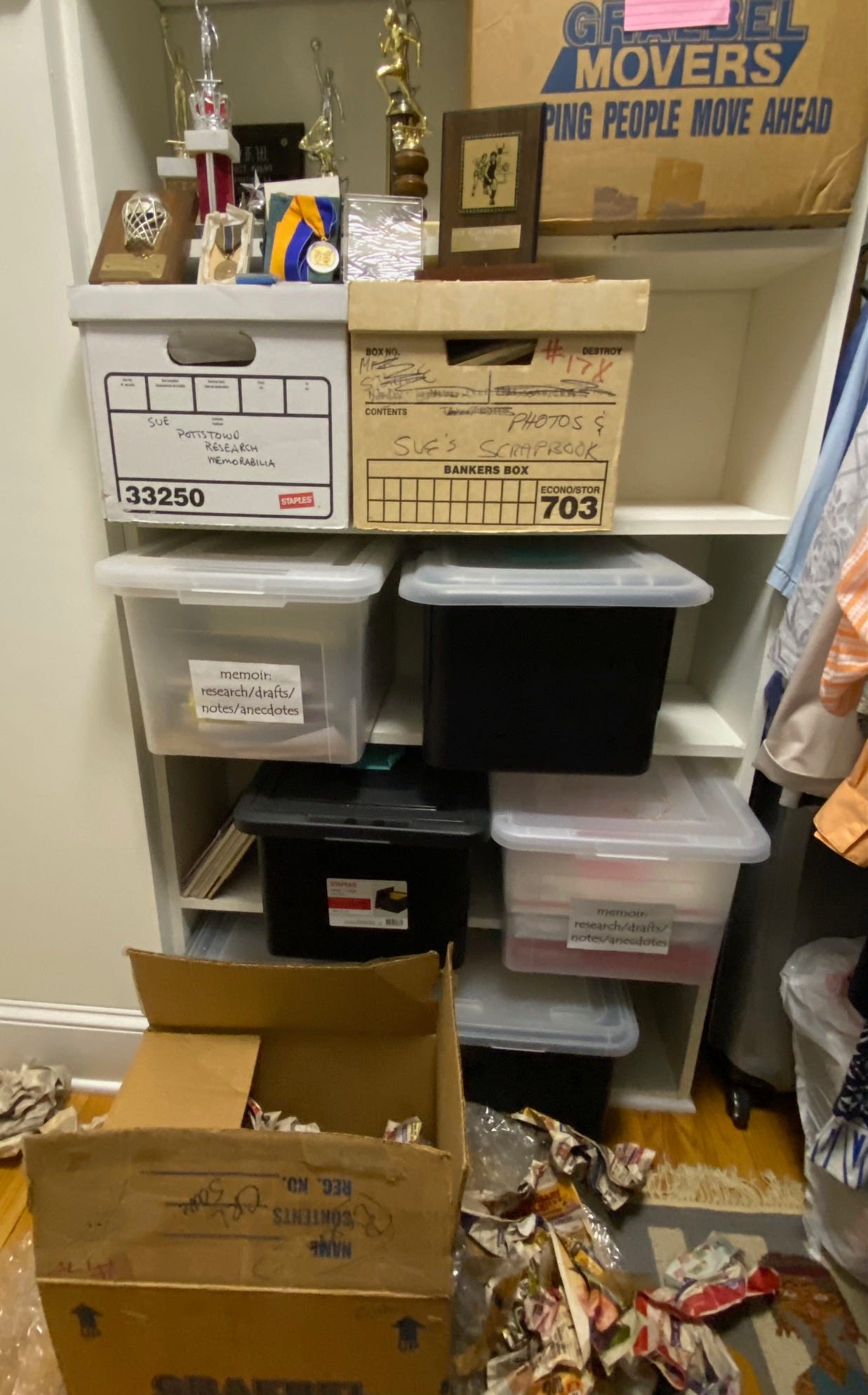
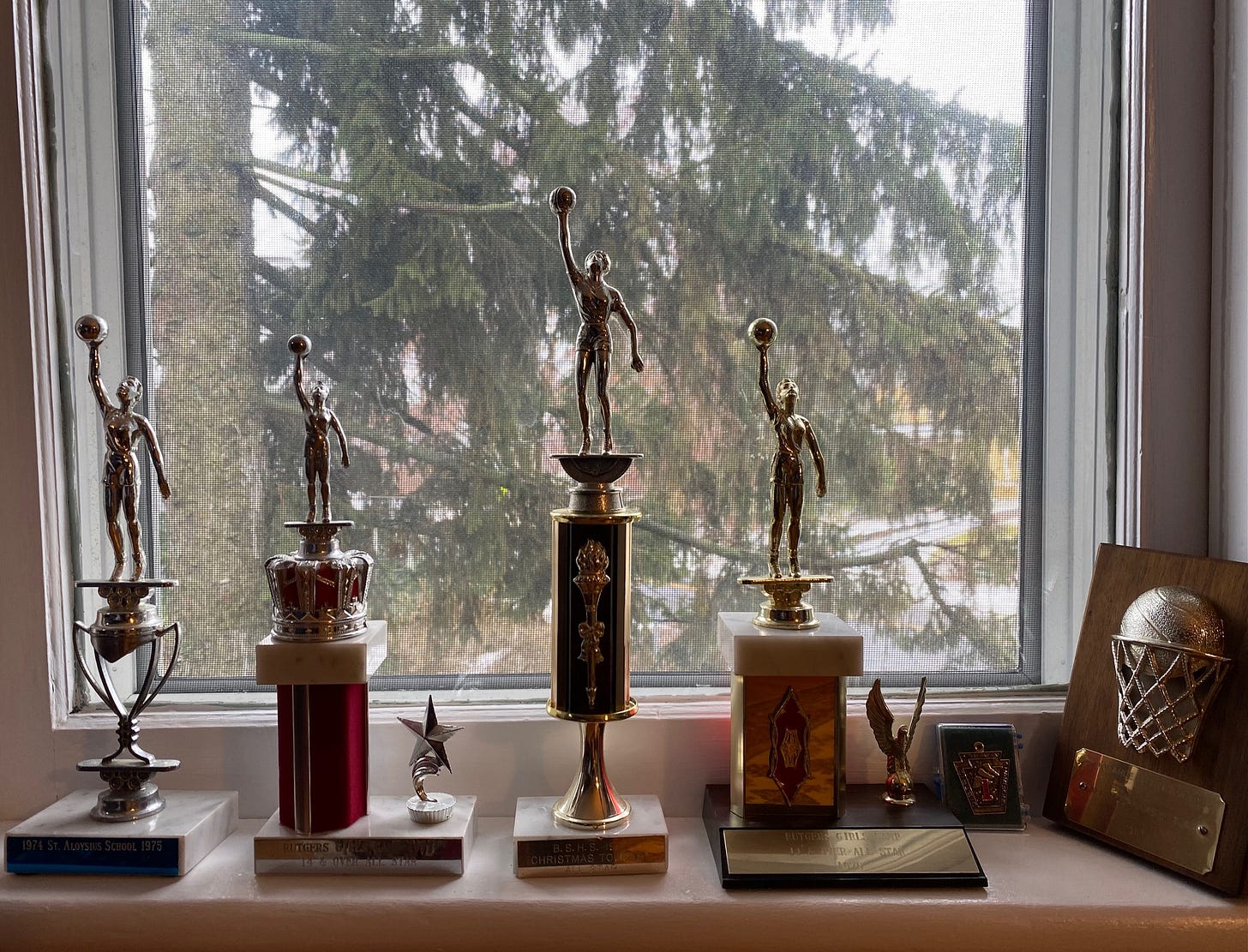
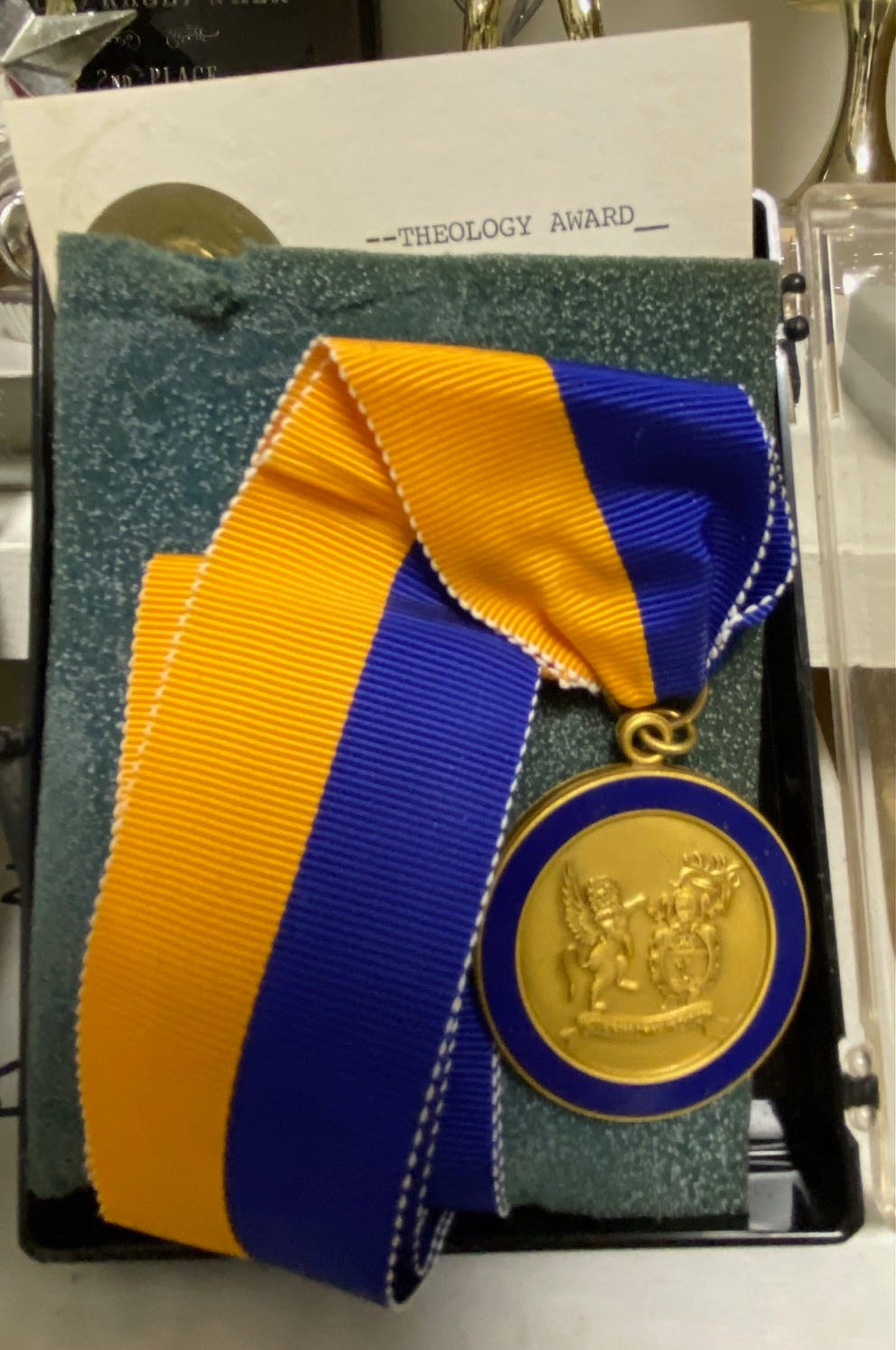

Sue, this is such a compelling excavation—not just of memorabilia but of identity, values, and the throughlines that connect who we were to who we are. It’s powerful to see how these childhood moments, like quoting MLK Jr. in that oratorical contest, weren’t just fleeting achievements but reflections of a deeper conviction that still guides you today.
Your DEI trophy isn’t just an object; it’s a touchstone—a moment in time that continues to ripple outward, shaping the way you move through the world. That connection between past and present, between what we once believed and how we enact those beliefs now, is at the heart of real transformation. The echoes of our experiences inform not just our personal evolution but the larger systems we engage with.
I also love how you challenge the idea that leaving a faith tradition means leaving behind the core values it instilled. Belief isn’t about rigid adherence to labels—it’s about what still vibrates as true within us, what continues to shape our actions, and the way we contribute to the world. That awareness, that choice to engage consciously with our past instead of just storing it in a box, is where growth happens.
The way you weave personal history with the larger cultural and political landscape is striking. Examining our own stories doesn’t just help us understand ourselves better; it creates space for others to do the same. That’s how we disrupt outdated narratives, challenge inherited beliefs, and move toward a more just and inclusive world.
Thanks for sharing this—it’s a reminder that the past isn’t just something we sort through but something that continues to shape us. And on a practical note, thanks for the trophy recycling tip! I imagine quite a few of us have a box (or several) waiting for that kind of solution. 🏆✨
Thanks for another thought-provoking essay, Sue. I'm starting to realize why I enjoy your writing so much. Besides the fact that you write well, we have more than a few things in common. I also have a large box of trophies that need to go (thanks, Kate, for the donation idea). As a result of winning all those trophies, my knees don't work quite as well as I would like. I, too, went to Catholic grade school (also St. Al's… in my case St. Alphonsus) and Catholic high school. I am a “fallen away” Catholic who long ago abandoned the theology and the institutional church but who still pretty much operates by the “be good to other people, or at least don’t be an arsehole” values that I was taught in Catholic school. Those values, however simple, seem to be in short supply lately. We’ll get through this. Onward.